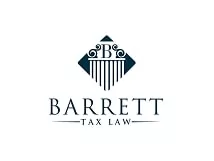Here is what we know so far about Canada's Emergency Wage Subsidy, a government program helping businesses avoid having to lay-off their employees during the Covid-19 Pandemic. We will be updating this article as new details are released.
- The Canada Emergency Wage Subsidy is for businesses small and large – there is no minimum employee requirement
- In order to be eligible, companies must have seen a reduction in gross revenue of at least 15% in the month of March, 2020 and 30% in the following months, and you do have the option to choose January and February of this year as a reference period
- Non-profit organizations and charities are eligible to apply, and they have the option to include or exclude government subsidies when calculating loss of revenue
- The government of Canada will be subsidizing up to 75% of an employee's salary on the first $58,700 that the employee earns. In other words, the maximum weekly subsidy would be equivalent to $847
- This subsidy is retroactive as of March 15, 2020
- Businesses may use this subsidy for up to three months (i.e. 12 weeks)
- In the interest of all Canadians, the Government of Canada is asking business owners to use this subsidy in good faith and ONLY apply for the wage subsidy if there is a need for it. They ask that if you are still able to continue paying your employees their salary without the government's help – to please continue doing so. They also ask companies to make up the other 25% if they are able to – with the Prime Minister stating on April 1, 2020 that those companies who do not pay the employee's remaining 25% salary will have to "attest" or prove that they were unable to pay that balance
- Businesses who do not meet the eligibility requirements but still apply for this government assistance – or otherwise make fraudulent claims in order to be deemed eligible – will have to repay the money given to the business plus additional penalty charges – and may even be subject to criminal charges
- Businesses will apply for the Canadian salary subsidy via the Canada Revenue Agency
The content of this article is intended to provide a general guide to the subject matter. Specialist advice should be sought about your specific circumstances.


